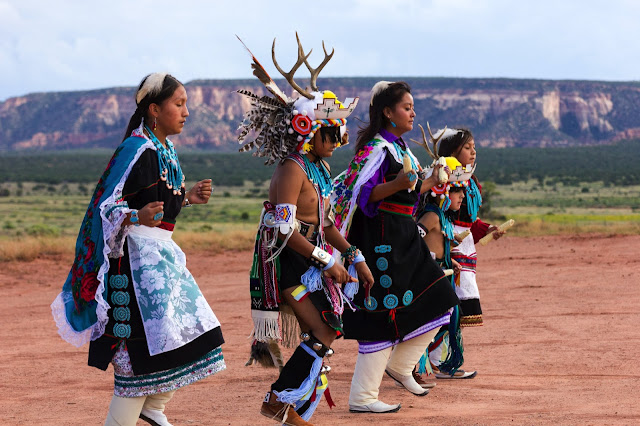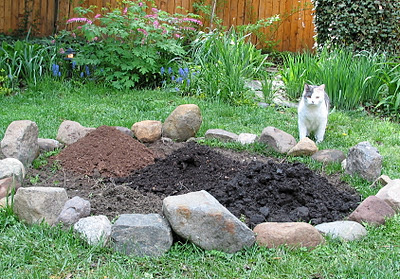Haidas block roads, close down logging operations: “Enough is enough”
Published in Indian Country Today in 2005. For more on topics like this, see my book, American Apartheid: The Native American Struggle....
Since March 21, residents of Haida Gwaii (also called the Queen Charlotte Islands), off the west coast of British Columbia, have blockaded roads to a log-sorting facility used by Weyerhaeuser, the giant American timber-products company. Members of the Haida Nation and their non-Native neighbors have also closed down the local office of the Canadian Ministry of Forests.
The day before the checkpoints were set up, Guujaaw, the president of the Haida Nation, appealed to Adrienne Clarkson, the governor general of Canada, for help in resolving the situation. At press time, Clarkson had not responded to the request; nor did her office respond to Indian Country Today’s requests for a comment.
The protesters object to Weyerhaeuser’s recent $1.2 billion deal transferring a logging lease to Brascan Corp; cutting permits issued by the province of British Columbia that allow logging in protected areas are another flashpoint. Signs reading “Enough Is Enough” can be seen on roads to the corporation’s log-processing area, which is west of the town of Queen Charlotte City.
The province and the islanders had just completed a land-use planning process, when the cutting permits were approved, according to Haida tribal spokesperson Gilbert Parnell. “The province had worked very hard with us — Haida and non-Haida alike — to come up with an island-wide plan based on sustainability and respect for the land,” he said.
The Haidas maintain, as they have for decades, that they are not anti-logging. “We’re looking for economic and environmental sustainability, with jobs for all islanders,” explained Barbara Wilson, Haida, cultural liaison specialist at Gwaii Haanas National Park Reserve and Haida Heritage Site.
The province’s actions run counter to a unanimous November 2004 decision by the Supreme Court of Canada, which required it to consult with and accommodate indigenous peoples in matters that impact land claims. Since the Haida claim ownership of the archipelago, also known as the Queen Charlotte Islands, and are engaged in treaty negotiations, they argue that the court’s decision applies in the current situation.
The court also warned British Columbia not to hide behind legislation that attempts to absolve it of responsibilities to Native people. However, the province appears to be doing just that with the recent passage of legislation called the Significant Projects Streamlining Act. The sweeping law allows British Columbia to remove “constraints” to projects that it considers “provincially significant” — essentially clearing the way for unfettered development.
“The province is here to help industry get as much as it can as fast as it can,” said Parnell. “The people making decisions don’t live here on Haida Gwaii. They don’t wake up in the morning and see what their decisions have wrought.”
Weyerhaeuser feels its business practices have been appropriate, even though they impact resources that are the subject of current treaty negotiations, according to Sarah Goodman, Weyerhaeuser’s public relations manager. “Unfortunate” was how Goodman described the protest: “It has affected the jobs of local people.”
Until the Haidas’ concerns are dealt with, the community and its local allies will turn back all loggers. They’ll barricade the roads “for as long as it takes,” said Parnell.
The islands, where the Haidas have lived for millennia, have been called a northern Galapagos because of their biodiversity and because many plant and animal species there have evolved independently of relatives on the mainland. Covered with old-growth forests, they form what is widely described as one of the most spectacular landscapes in North America.
“I’ve traveled all over the world, and I can tell you this is the most beautiful place I’ve ever seen,” said Nika Collison, Haida, a volunteer coordinator of the protest. Her work involves making sure the checkpoints are manned 24 hours a day.
“I was born into this,” Collison said. “My generation inherited these issues, but also the ability to resolve them for the generations to come. My daughter, who is one month old, has already been on the line with me twice.”
Elders are also actively involved. “My dad, who’s 92, is there all day, every day,” said Wilson. Some of the older folks are veterans of the 1985 Lyell Island demonstrations against irresponsible logging and the destruction of the Haida Gwaii forest ecosystem. Extensive resource extraction — including both logging and mining — had come to the island chain during the 1950s. Prior to that, just a relatively small amount of spruce had been harvested to make warplanes during World War II. Haida people were soon dismayed by the devastation industry was causing to their traditional landscape and its bounty.
There has been no violence in the Haida Nation’s current action; nor has it been met with violence. “One law takes precedence over everything, and that is respect – for this place and each other,” said Parnell. “We have an excellent relationship with the local Royal Canadian Mounted Police. Moreover, people who work for Weyerhaeuser and live here on island know what we’re about, and they respect what we’re doing.”
On the community’s web site (www.haidanation.ca/islands), one participant in the action described watching as a copper-tongued wooden dog mask — a gift from another First Nations community signifying guardianship and loyalty — was placed on a fire along with offerings of food. People watched quietly as the flames rose and the smoke carried the gifts on their journey to the spirit world.
As the action got underway last week, Ethel Jones, one of the last remaining veterans of the Lyell Island protests, fell ill and was taken to the hospital. “She’s a matriarch and very important to our people,” said Parnell. “From her hospital bed, she tells us we must continue to fight for the integrity of our culture and our land. Nonii (Grandmother) reminds us that we’re doing what’s right.”
Text c. Stephanie Woodard; photos courtesy Haida Nation.
Text c. Stephanie Woodard; photos courtesy Haida Nation.



